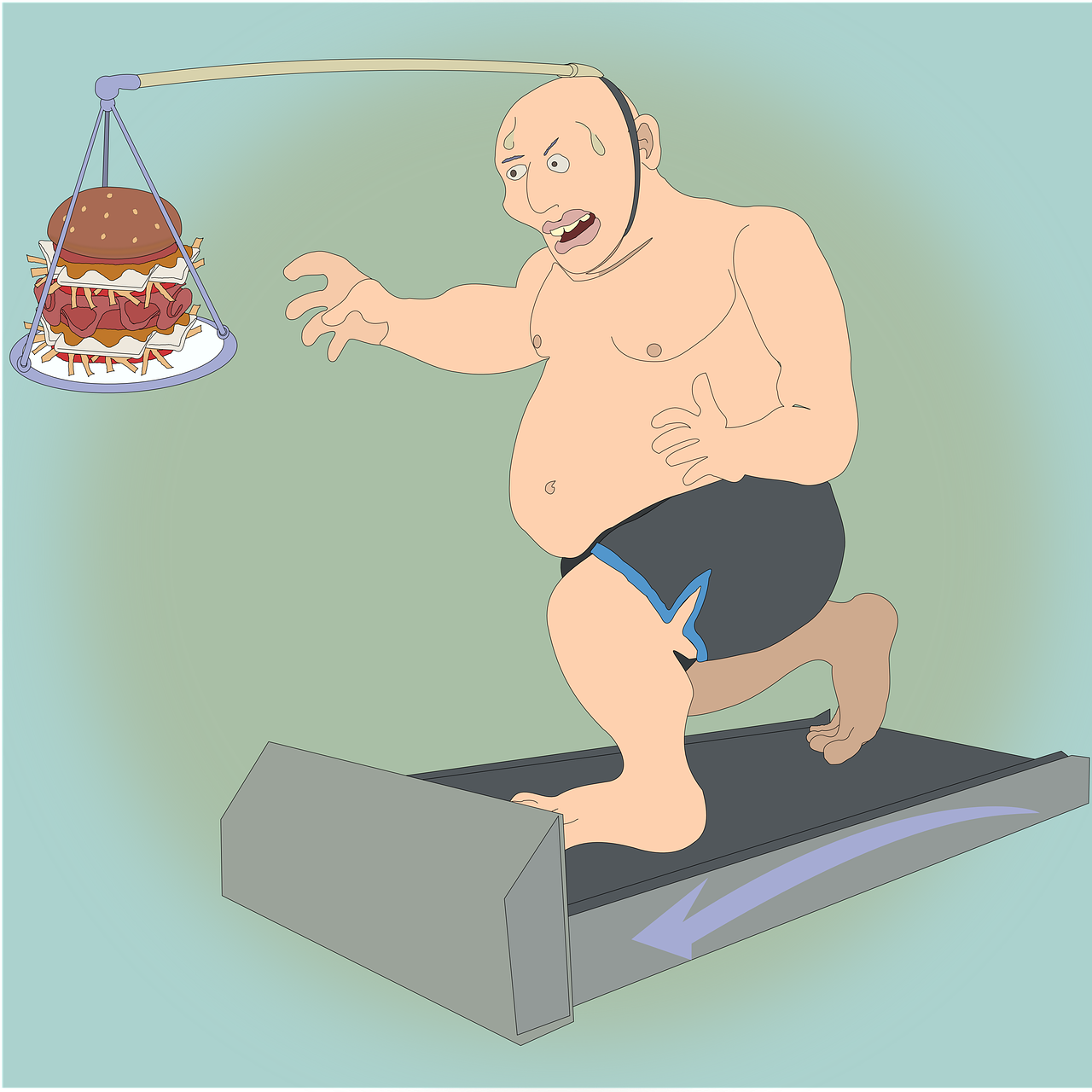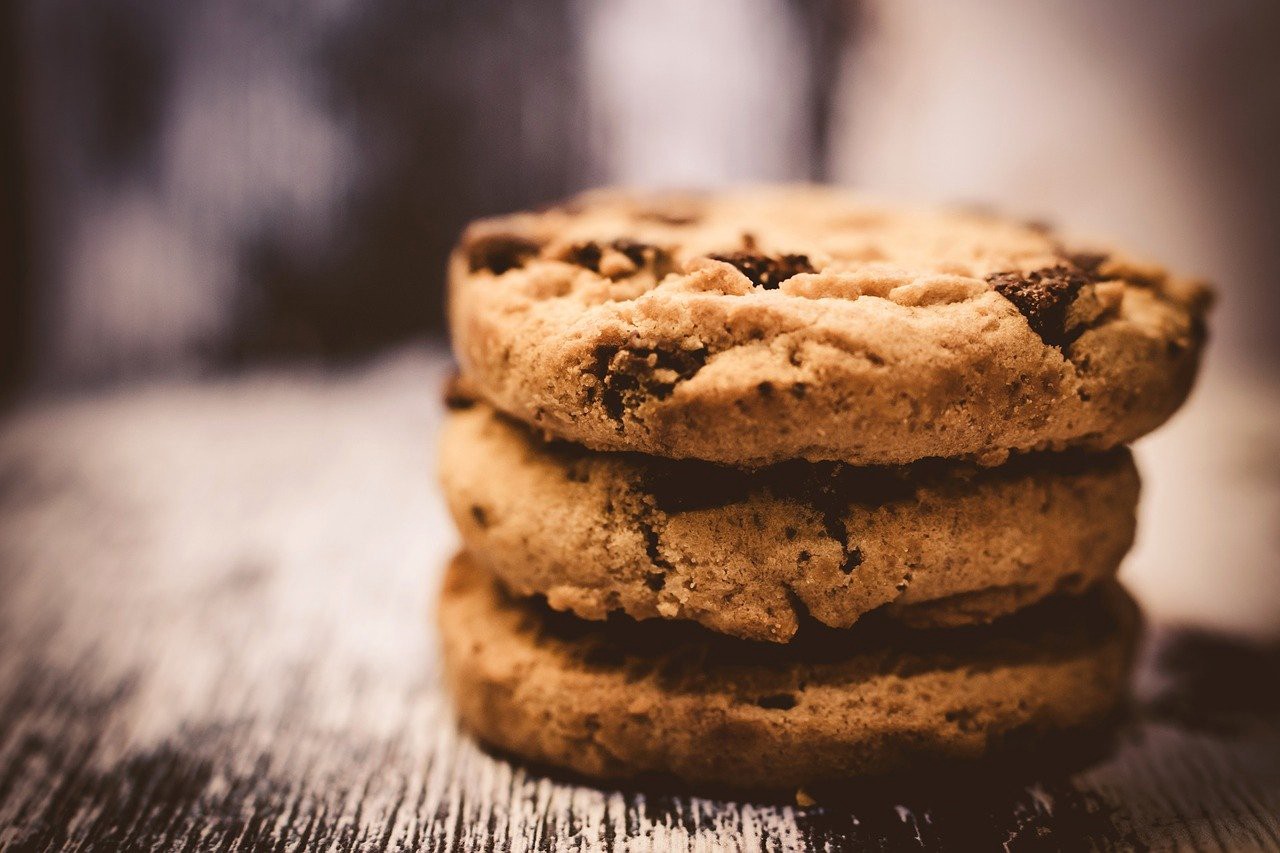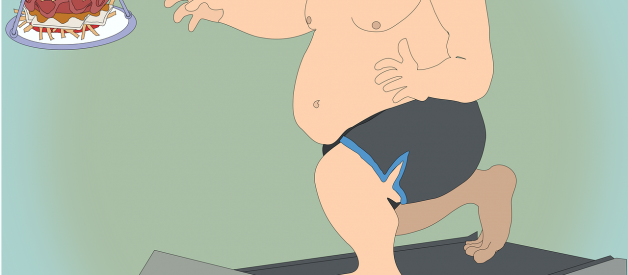– It?s a short-term fix. Here?s what works in the long-term.
 Image
Image
When it comes to ?going on a diet?, there are many well-trodden approaches. The traditional one, usually advocated by official policy makers, is to eat less and move more.
This advice is based on the first law of thermodynamics, a law that applies beautifully to internal combustion engines. Not so much human metabolism.
Nevertheless, the simplicity of this theory is so intuitively appealing that it has endured, and continues to endure, despite all the evidence to the contrary. It assumes that obesity is a disorder of energy imbalance: when calories-in exceed calories-out, there is an energy surplus that the body stores as fat.
?The ancient prescription of Hippocrates (400 BC) that the obese should eat less and exercise more continues nowadays to be a widespread approach for weight management despite its well-documented failures? (Dulloo et al 2012)
Perhaps you?ve already been there. Perhaps you already know that reducing the amount of food you eat starts well and ends badly. But you keep doing it anyway.
Don?t be too hard on yourselves, you regressors: counting calories is what you have been instructed to do, and what you have done, for longer than you care to remember, to little or no effect. Or rather, to great effect ? at first. You reduce your calorie intake substantially, and quickly lose weight. Marvellous! You?re hungry, pretty much all the time, but the system?s working and you?ve got the willpower.
But soon enough your weight reaches that inevitable plateau. What?s more, your hunger is now raging, gnawing at both your stomach and your resolve.
Your weight loss has flatlined and even eating ?normally? results in weight gain and that creeping sense of despair; you can see what?s coming. One emotional trigger, one unkind word, and your willpower crumbles like the cake that?s flashing before your eyes.
You can only keep this up for so long, as every hard-boiled dieter will concur. You really do have to get off this treadmill.
Numerous studies have concluded that dieting is associated with long term weight gain. This phenomenon has even been given a scientific name: fat overshooting. Charming.
In other words, you will regain the weight that you lost, and then some.
?The long-term result of dieting thus may paradoxically be the opposite of the desired goal? (Pietilinen et al).
This apparent paradox is attributed to a decrease in resting energy expenditure and ?adaptive thermogenesis?, as the body (the thyroid gland) adjusts its metabolic rate to match the reduction in calorie intake.
It doesn?t have to be like this. The long-term solution is easier, more effective and evidence based. It involves these three principles:
1. When you cut out unnecessary carbohydrates, you burn body fat
2. When you eat fat, you burn fat.
3. When you eat protein, you stay full for much longer.
And so to the science.
1. Cutting out carbs
A low carbohydrate diet works because it reduces insulin secretion and stimulates the release of fat from storage.
It is said that you can have too much of a good thing, and that?s certainly true of insulin. Without this hormone you?re either dead or diabetic, but too much can make you fat and sick.
Insulin is the great multi-tasker, performing numerous important functions in the body. But in terms of weight management it has three major roles, as explained below.
First, insulin regulates blood sugar. Insulin is released by the pancreas when food enters the stomach, and nothing stimulates this hormone quite like carbohydrate. Carbohydrates include cereals and other starchy grains, bread, pasta, pastries, potatoes, and sweet and savoury snacks.
 Image
Image
Eat carbohydrates and your digestive system will get to work, breaking them down into smaller molecules of glucose and then transporting those molecules through the gut lining into the bloodstream. The more carbohydrate you eat, the more glucose enters the blood.
This glucose, or sugar, needs to be tightly regulated. Too much and you are in potential danger. You have only (or should have only) around a teaspoon-worth of sugar coursing through your blood vessels at any given time.
This is where insulin comes in. It takes surplus glucose and sends it off for storage in your muscles and liver, where it becomes known as glycogen. When these depositories are full ? and they have limited storage capacity ? off goes that surplus glucose to your adipose tissue, aka body fat.
And that, folks, is how sugar is transformed into fat. It?s not magic; it?s the horrid inevitability of eating lots of carbs.
Thus, the second main role of insulin concerns fat storage. You only have room for around 2,000 calories-worth of glycogen in your muscles and liver, but the storage capacity of your adipose tissue is prodigious.
The third role of insulin is to block the flow of fat out of adipose tissue. All that guff you have heard about carbohydrate being the body?s ?preferred? fuel is utter nonsense. Your body will always burn carbohydrate first, not because it loves it more than anything else but because circulating glucose is potentially lethal if it is not dealt with immediately.
If you continue to eat lots of carbohydrates, your fat stores will remain locked away. You won?t burn your stored fat because there?s no requirement to do so. When glucose from carbohydrate is not available, your body is only too happy to burn fat instead.
?It is time to embrace LC (low carbohydrate) diets as a viable option to aid in reversing diabetes mellitus, risk factors for heart disease, and the epidemic of obesity.? (Hite et al)
2. Eating fat to burn fat
For years, you?ve been told that in order to burn fat you have to avoid fat. It seems logical, so you have sacrificed flavour ? because that?s what fat provides ? to achieve your weight loss goal. You?ve even convinced yourself that those fat-free options are delicious, despite their disappointing aftertaste.
No gain without pain, right? Wrong ? because if you want to burn fat, it is essential that you eat fat. Your goal is to burn the surplus fat that sits in your adipose tissue. Surplus energy is there to be drawn on when necessary. The trick is to make it necessary.
When your diet consists predominantly of fat (and protein) with very low carbohydrate, you switch from burning glucose to burning fatty acids and ketones, made from your body fat. That is why a low carbohydrate, high fat diet is sometimes referred to as a ketogenic diet.
?Despite concern that they are often relatively high in fat, ketogenic low-carbohydrate diets have been generally shown to compare favourably with low-fat diets in terms of weight loss? (Sumithran & Proietto)
Studies reveal that in the short term, there is no significant difference in the efficacy of a low carbohydrate diet or low-calorie diet. It?s in the long-term that the ketogenic diet comes into its own, and emerges as the superior system.
A systematic review and meta-analysis (a type of study where all the data from the best available studies is pooled) investigated whether a very low carbohydrate ketogenic diet achieved better weight loss in the long term (and had better effects on cardiovascular health) than a low-fat diet. The researchers trawled through thirteen, high quality studies that had a duration period of at least 12 months. They found that those on the high fat diet achieved the greatest weight loss in the long term. They also experienced better cardiovascular health, including healthier blood pressure. (Bueno et al 2013)
?In conclusion, the present meta-analysis demonstrates that individuals assigned to a VLCKD (very low carbohydrate ketogenic diet) achieve significantly greater long-term reductions in body weight, diastolic blood pressure and TAG (blood fats)?. compared with individuals assigned to a LFD (low fat diet); hence, the VLCKD may be an alternative tool against obesity.? (Bueno et al)
What constitutes a low-carbohydrate diet? There is no official definition, but less than 50g/day is generally accepted as low carbohdyrate. Less than 30g/day is considered a very low carbohydrate diet.
3. Eating more protein
It is every dieter?s dream to have an appetite that is totally and painlessly under control. Welcome to protein.
A higher protein diet by-passes the pain of weight loss. It not only keeps your appetite satisfied for longer, it promotes good health and vitality too.
There are two extraordinary ways in which it does this.
- Protein Magics Away Appetite
Protein is more filling than fat, despite containing fewer calories per gram. In studies, a diet consisting of 30% protein has been found to markedly increase fullness, and to lead to less desire to eat.
How does protein do this? The answer lies in its ability to influence certain hormones that regulate appetite. One of these hormones is ghrelin.
Ghrelin is secreted in the stomach and stimulates appetite by acting as a hunger signal to the brain. Therefore, as you?d expect, levels of ghrelin rise when you reduce your calorie intake.
Protein suppresses concentrations of this hormone once you have finished eating, and for prolonged periods thereafter.
?Higher protein weight-loss diets have led to beneficial reductions in body weight, fat mass, and food intake, while preserving lean body mass, and improving satiety in overweight and/or obese individuals. Because of these benefits, higher protein diets are potentially a preferable dietary strategy in combating obesity than traditional reduced energy diets.? (Leidy et al)
Protein also increases levels of two key hormones that work in opposition to ghrelin, by suppressing hunger: polypeptide YY (PYY) and cholecystokinin (CCK).
PYY is secreted along the digestive tract; levels increase after eating, and decrease during fasting.
CCK is stimulated by both protein and fat, and makes you feel full by slowing down the rate at which food passes out of the stomach (?gastric emptying? is the terminology). PYY can have a pronounced effect on the desire to eat.
CCK has been the subject of some intense research over the last thirty years, mainly because of its influence on the gut-brain connection. It is found throughout the small intestine, and is released after eating. In the same way that ghrelin can increase appetite, CCK induces the feeling of fullness.
2. Protein burns fat faster
A high protein diet not only promotes appetite control, it speeds up fat burning. It does this by increasing your resting metabolic rate. What?s more, this effect is immediate, which is terrific because you want to lose weight in the here and now, not on another time and space continuum.
When a group of 130 men and women aged 40?56 were given either a high protein, low carbohydrate diet, or a low protein, high carbohydrate diet, for four months, those in the high protein group lost 22% more fat mass than the high carbohydrate group, even though these two groups consumed the same number of calories throughout. As the researchers conclude:
?..positive outcomes associated with increased dietary protein are thought to be due primarily to lower energy intake associated with increased satiety, reduced energy efficiency and/or increased thermogenesis, positive effects on body composition, specifically lean muscle mass, and enhanced glycemic control.? (Paddon-Jones et al)
What protein?
The best quality sources of protein are meat, fish, seafood, eggs and cheese. The best plant protein for vegetarians is nuts, such as cashews, hazelnuts, walnuts and pecans, as they are a combination of fat and protein. The problem with other plant-based sources of protein is that they almost always contain high amounts of carbohydrate, which is what you are trying to avoid.
Take quinoa, often suggested as an ideal source of vegetarian protein. The truth is it contains only 14% protein: the rest is mainly carbohydrate.
When you combine protein with high amounts of fat, and as little carbohydrate as possible, weight loss is accelerated, and feels effortless.
That is the fundamental science of successful, long-term weight loss. But to complete the package, there?s one more important consideration. The timing of your meals, and when and how you sleep are both crucial elements of fat burning metabolism. You need to make sure you are aligned with your body clock ? aka circadian rhythm – in order to trigger the hormones that stimulate fat burning. For more details of precisely how to do this, see my article How to burn fat overnight.
How to burn fat overnight
Engage with your circadian rhythms and lose weight while you sleep.
medium.com
The human body, unlike an internal combustion engine, is a complex living organism, driven by ancient survival mechanisms. When you reduce your fat and calorie intake, you engage in a battle with your body, one that you cannot win.
So don?t engage in this futile battle. Work with your body ? it was never the enemy.


